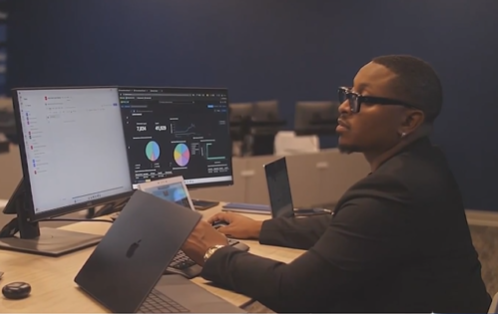It was a bizarre story that made national headlines. Scammers, appearing to use artificial intelligence, to try to dupe Lauren Albrecht, a South Florida title company owner who said as soon as she saw a video of a woman during a zoom call, she knew it was fake.
“After the second pause I realized, this is 100% a video, playing on a loop,” she told NBC6. “It is not real.”
Watch NBC6 free wherever you are
>The zoom call, she told NBC6 back in September, was to verify if the woman pictured in an ID provided during a sale, was real. The woman’s name was supposedly Margaret Ann McCartney, the owner and seller of a vacant lot in South Florida. But it turned out, scammers were trying to dupe the title company. The image was actually of Margit Prichard, a woman who was reported missing in Mendocino County, California in 2018.
“We had hundreds of searchers that dedicated thousands of hours searching for Margit,” said Quincy Cromer, a captain with the Mendocino County Sheriff’s Office.
Get local news you need to know to start your day with NBC 6's News Headlines newsletter.
>NBC6 tracked down Capt. Cromer to talk about what happened.
“I’ve never seen that type of likeness or information used for a criminal act in my experience,” he said.
Margit, he said, is still missing. The department contacted her family to let them know what happened.
Responds
Responding to every consumer complaint
“The initial response is probably shock and surprise,” he said. “And then it’s like ‘hey, this is my loved one and I’m not happy that they’re doing this to people.”
NBC6 showed the video of the woman to Dr. Ernesto Lee, a professor at Miami-Dade College’s Artificial Intelligence Center, who said as soon as he saw it, he knew it was an AI-generated video.
“But only because I know what to look for,” Dr. Lee explained.
Even though there are ways to spot fake videos, Dr. Lee said there is sophisticated software that could make that very difficult.
“The more sophisticated ones, you can’t see the strings on the puppets,” he said. “It will trick the human brain.”
Using one of several basic AI programs readily available on the internet, Dr. Lee showed NBC6 just how easy it was to create a basic deep fake. He recorded a brief video of himself speaking, uploaded the clip to the site and, with a few clicks of the mouse, he was able to create a new video of himself within minutes, saying something he never actually said.
Deep fakes are becoming more common. In fact, they were so concerning leading up to the 2024 presidential election, a non-profit created a public service campaign, warning you not to be duped by AI-generated videos.
Dr. Lee showed NBC6 how to spot the fakes.
“The eyes in the deep fake are not going to be looking at the camera,” he said. “Look at the lips. The lips oftentimes won’t sync with the audio. A lot of times it plays on loops. So you want to look for the same motions back and forth because it’ll eventually loop.”
When asked what keeps him up at night, Dr. Lee said it was the thought that the technology could outpace our ability to control it.
“We don’t have a strong policy framework or legal framework to contain what can go wrong,” he said. “There’s a lot that we can do, lots of benefits we have with this. But I think we need to be in front of this and have some strong policies in place so we can constrain some of the possible ills.”
That’s one reason why Dr. Lee said it was important to limit the data you have readily available online. If you post a picture or videos of your family on social media, keep in mind that this data is now out there and could be used to generate fake videos or images.



